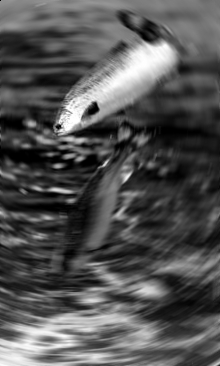Fish farms harm hearing crystals
 Research suggests high-intensity fish farms could harm hearing.
Research suggests high-intensity fish farms could harm hearing.
Bony fish species hear by using tiny crystals called ‘otoliths’ to pick up sound.
But a new study has shown that farmed fish are much more likely to have a larger crystal called a ‘vaterite’ growing into their otolith and obstructing their ability to hear.
The new paper by marine biologist Tormey Reimer finds that the most significant factor in a salmon’s likelihood of developing vaterites – beyond diet, and genetics – is their growth speed.
For a number of reasons, farmed fish typically grow much faster than their wild counterparts, including eating a higher-nutrient feed, and being exposed to longer light conditions than in the wild.
Because salmon eat whenever the lights are on, farmed fish tend to guzzle more feed; growing faster and more efficiently.
“The fastest-growing fish were three times more likely to have vaterites than the slow-growing fish,” Reimer says.
It is not clear just why faster growth leads to vaterite formation, it is known that fish afflicted with vaterites will have impaired hearing for life.
“I see this as one of many puzzle pieces in animal welfare,” Reimer has told The Guardian.
“What’s surprising is that we’ve known about most of the issues in aquaculture for a really long time, but this is a brand new one that’s just popped up.”








 Print
Print